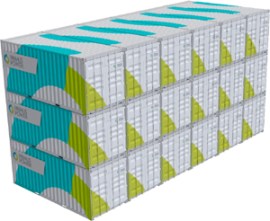
by Shane Henson — February 4, 2013—Primus Power, a California-based provider of grid-scale electrical energy storage, was awarded a contract by Raytheon’s Integrated Defense Systems (IDS) business to deliver and support an electrical energy storage system for a microgrid at the Marine Corps Air Station (MCAS) in Miramar, California. Primus will work closely with Raytheon as part of the “Zinc Bromide Flow Battery Installation for Islanding and Backup Power” project funded by the Department of Defense Environmental Security Technology Certification Program (ESCTP), says the company.
A microgrid is a self-contained electrical grid comprised of energy generation, distribution, storage and loads all managed by an automated control system on a remote or secure location, such as a military base. Energy storage systems are a key enabler to integrate intermittent solar and wind energy into a small grid, explains Primus Power. Growth for microgrids is being driven by security threats, natural disaster concerns, increase in electricity from renewable energy sources, and the need for secure and reliable power.
At MCAS Miramar, a Primus Power 250 kW – 1 megawatt hour (MWh) Primus EnergyPod will be integrated with an existing 230 kilowatt (kW) photovoltaic system. The Primus Power EnergyPod is a major advancement in battery technology, enabling high-power, cost-effective energy storage for incremental deployment, the company says. The combined microgrid system will demonstrate several capabilities, including reducing peak electrical demand typically experienced in weekday afternoons and providing power to critical military systems when grid power is not available.
“The DOD is adopting microgrids at stationary bases to sustain operations independent of what is happening on the larger utility grid,” said Tom Stepien, CEO of Primus Power. “Primus Power’s energy storage systems can shift, shape and firm electricity. Our systems have the unique combination of safety, cost and performance attributes that make them an ideal choice for microgrids such as Miramar’s.”





